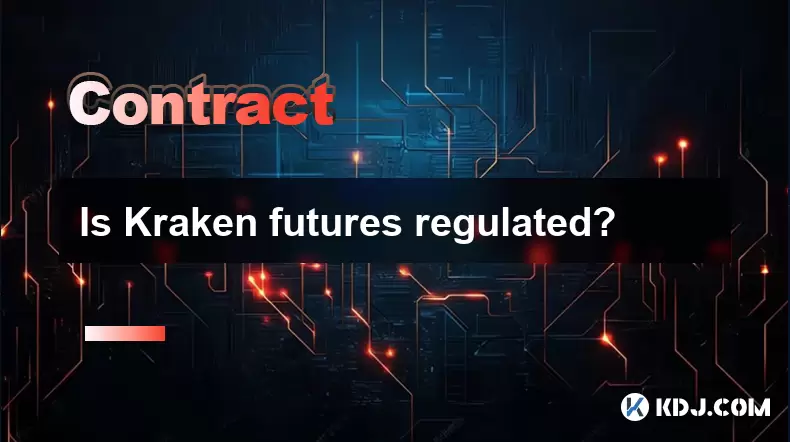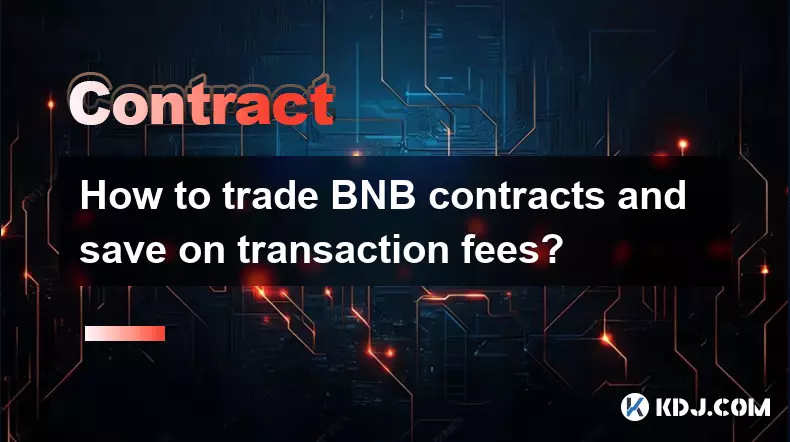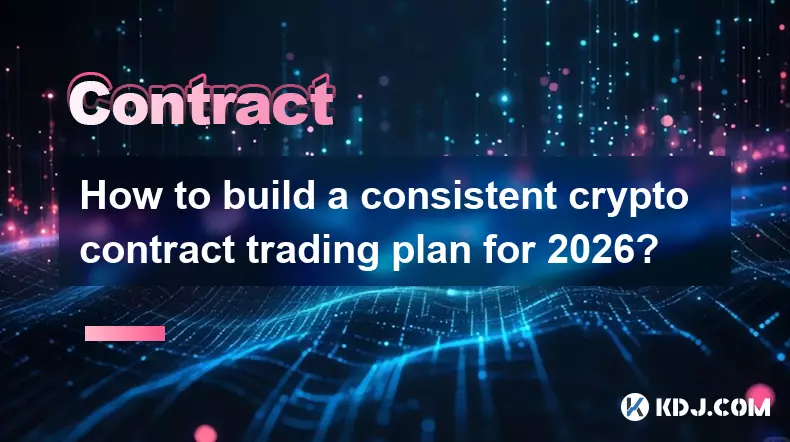-
 bitcoin
bitcoin $87959.907984 USD
1.34% -
 ethereum
ethereum $2920.497338 USD
3.04% -
 tether
tether $0.999775 USD
0.00% -
 xrp
xrp $2.237324 USD
8.12% -
 bnb
bnb $860.243768 USD
0.90% -
 solana
solana $138.089498 USD
5.43% -
 usd-coin
usd-coin $0.999807 USD
0.01% -
 tron
tron $0.272801 USD
-1.53% -
 dogecoin
dogecoin $0.150904 USD
2.96% -
 cardano
cardano $0.421635 USD
1.97% -
 hyperliquid
hyperliquid $32.152445 USD
2.23% -
 bitcoin-cash
bitcoin-cash $533.301069 USD
-1.94% -
 chainlink
chainlink $12.953417 USD
2.68% -
 unus-sed-leo
unus-sed-leo $9.535951 USD
0.73% -
 zcash
zcash $521.483386 USD
-2.87%
Is Kraken futures regulated?
Kraken Futures, operated by Crypto Facilities Ltd, is regulated by the UK’s FCA, ensuring trader protection through segregated funds, AML checks, and eligibility for up to £85,000 compensation under the FSCS.
Aug 07, 2025 at 03:15 pm

Understanding Kraken Futures and Regulatory Oversight
Kraken Futures, a division of the Kraken cryptocurrency exchange, offers leveraged trading on digital assets such as Bitcoin and Ethereum. The platform operates under the name Kraken Futures but is officially known as Crypto Facilities Ltd, a UK-based entity. This distinction is important because regulatory status depends on the legal entity and jurisdiction. In this case, Crypto Facilities Ltd is regulated by the UK Financial Conduct Authority (FCA), which grants it the authority to offer derivatives and contracts for difference (CFDs) to eligible clients.
What Does FCA Regulation Mean for Traders?
Being regulated by the FCA means Kraken Futures must adhere to strict compliance standards. These include anti-money laundering (AML) protocols, know-your-customer (KYC) requirements, and capital adequacy rules. Traders benefit from enhanced security, as regulated entities must segregate client funds from operational funds. Additionally, if Kraken Futures fails to meet its financial obligations, users may be eligible for compensation under the UK’s Financial Services Compensation Scheme (FSCS), up to £85,000 per person. This oversight ensures that traders are not left exposed to unmitigated counterparty risk.
How to Verify Kraken Futures’ Regulatory Status
To confirm Kraken Futures’ regulatory standing:
- Visit the official FCA register at [https://register.fca.org.uk](https://register.fca.org.uk)
- Search for “Crypto Facilities Ltd”
- Check the firm reference number: 928272
- Review the permitted activities: “Operating an MTF (Multilateral Trading Facility)” and “Cryptoasset derivatives contracts”This process ensures that the platform is not operating under false claims. Each of these steps is publicly accessible and requires no special permissions—only a web browser and attention to detail.
Differences Between Kraken Spot and Kraken Futures Licensing
It is crucial to distinguish between Kraken’s spot trading platform and its futures arm. The main Kraken exchange (Kraken.com) operates globally under various licenses, including a New York BitLicense for U.S. customers. However, Kraken Futures (Crypto Facilities Ltd) is a separate legal entity focused solely on derivatives. This means that while the spot platform may be licensed in multiple jurisdictions, only the futures division is directly regulated by the FCA. Users trading futures must ensure they are accessing the correct domain—typically krakenfutures.com or via the Kraken app’s futures tab—to remain under FCA supervision.Compliance Steps Kraken Futures Takes for Regulatory Adherence
Kraken Futures implements several mandatory procedures to maintain FCA compliance: - Mandatory identity verification for all users, including document uploads and facial recognition
- Real-time transaction monitoring using AI-based systems to flag suspicious activity
- Quarterly audits by independent third-party firms to assess risk management practices
- Segregated bank accounts for client funds, held at regulated financial institutions
- Transparent fee disclosures published on the platform’s website and within the trading interfaceThese steps are not optional—they are enforced by the FCA and subject to periodic review. Failure to comply could result in fines, suspension of operations, or revocation of the license.
Geographic Limitations Due to Regulation
FCA regulation also imposes geographic restrictions. Kraken Futures does not accept clients from the United States, Canada, Japan, or any country where derivatives trading is prohibited by local law. During account creation, the platform uses IP geolocation and ID document checks to enforce these boundaries. If a user attempts to access Kraken Futures from a restricted region, they will be redirected to the spot trading platform (if eligible) or blocked entirely. This ensures Kraken Futures remains compliant not only with UK law but also with international financial regulations.
FAQsQ: Can U.S. residents trade Kraken Futures?No. Kraken Futures is not available to U.S. residents due to regulatory restrictions. U.S. users must use Kraken’s spot trading platform, which is licensed under the New York State Department of Financial Services BitLicense.
Q: Is Kraken Futures regulated in the EU after Brexit?No. Following Brexit, the FCA license no longer grants automatic access to EU markets. Kraken Futures does not currently offer services to EU residents, as it has not obtained separate authorization from an EU financial regulator like Germany’s BaFin or France’s AMF.
Q: How often does the FCA audit Kraken Futures?The FCA conducts annual on-site inspections and requires quarterly compliance reports. Kraken Futures also undergoes independent audits by third-party firms like Deloitte or PwC to verify adherence to capital and risk management standards.
Q: What happens if Kraken Futures goes bankrupt?If Kraken Futures (Crypto Facilities Ltd) becomes insolvent, eligible clients may claim compensation under the UK’s Financial Services Compensation Scheme (FSCS), up to £85,000 per person. This protection applies only to funds held in segregated accounts—not to unrealized trading gains or losses.
Disclaimer:info@kdj.com
The information provided is not trading advice. kdj.com does not assume any responsibility for any investments made based on the information provided in this article. Cryptocurrencies are highly volatile and it is highly recommended that you invest with caution after thorough research!
If you believe that the content used on this website infringes your copyright, please contact us immediately (info@kdj.com) and we will delete it promptly.
- Ozak AI Fuels Network Expansion with Growth Simulations, Eyeing Major Exchange Listings
- 2026-02-04 12:50:01
- From Digital Vaults to Tehran Streets: Robbery, Protests, and the Unseen Tears of a Shifting World
- 2026-02-04 12:45:01
- Bitcoin's Tightrope Walk: Navigating US Credit Squeeze and Swelling Debt
- 2026-02-04 12:45:01
- WisdomTree Eyes Crypto Profitability as Traditional Finance Embraces On-Chain Innovation
- 2026-02-04 10:20:01
- Big Apple Bit: Bitcoin's Rebound Hides a Deeper Dive, Say Wave 3 Watchers
- 2026-02-04 07:00:03
- DeFi Vaults Poised for 2026 Boom: Infrastructure Matures, Yield Optimization and Liquidity Preferences Shape the Future
- 2026-02-04 06:50:01
Related knowledge

How to close a crypto contract position manually or automatically?
Feb 01,2026 at 11:19pm
Manual Position Closure Process1. Log into the trading platform where the contract is active and navigate to the 'Positions' or 'Open Orders' tab. 2. ...

How to understand the impact of Bitcoin ETFs on crypto contracts?
Feb 01,2026 at 04:19pm
Bitcoin ETFs and Market Liquidity1. Bitcoin ETFs introduce institutional capital directly into the spot market, increasing order book depth and reduci...

How to trade DeFi contracts during the current liquidity surge?
Feb 01,2026 at 07:00am
Understanding Liquidity Dynamics in DeFi Protocols1. Liquidity surges in DeFi are often triggered by coordinated capital inflows from yield farming in...

How to use social trading to copy crypto contract experts?
Feb 02,2026 at 07:40am
Understanding Social Trading Platforms1. Social trading platforms integrate real-time market data with user interaction features, enabling traders to ...

How to trade BNB contracts and save on transaction fees?
Feb 03,2026 at 12:39am
Understanding BNB Contract Trading Mechanics1. BNB contracts are derivative instruments traded on Binance Futures, allowing users to gain leveraged ex...

How to build a consistent crypto contract trading plan for 2026?
Feb 02,2026 at 10:59pm
Defining Contract Specifications1. Selecting the underlying asset requires evaluating liquidity depth, historical volatility, and exchange support acr...

How to close a crypto contract position manually or automatically?
Feb 01,2026 at 11:19pm
Manual Position Closure Process1. Log into the trading platform where the contract is active and navigate to the 'Positions' or 'Open Orders' tab. 2. ...

How to understand the impact of Bitcoin ETFs on crypto contracts?
Feb 01,2026 at 04:19pm
Bitcoin ETFs and Market Liquidity1. Bitcoin ETFs introduce institutional capital directly into the spot market, increasing order book depth and reduci...

How to trade DeFi contracts during the current liquidity surge?
Feb 01,2026 at 07:00am
Understanding Liquidity Dynamics in DeFi Protocols1. Liquidity surges in DeFi are often triggered by coordinated capital inflows from yield farming in...

How to use social trading to copy crypto contract experts?
Feb 02,2026 at 07:40am
Understanding Social Trading Platforms1. Social trading platforms integrate real-time market data with user interaction features, enabling traders to ...

How to trade BNB contracts and save on transaction fees?
Feb 03,2026 at 12:39am
Understanding BNB Contract Trading Mechanics1. BNB contracts are derivative instruments traded on Binance Futures, allowing users to gain leveraged ex...

How to build a consistent crypto contract trading plan for 2026?
Feb 02,2026 at 10:59pm
Defining Contract Specifications1. Selecting the underlying asset requires evaluating liquidity depth, historical volatility, and exchange support acr...
See all articles










































































